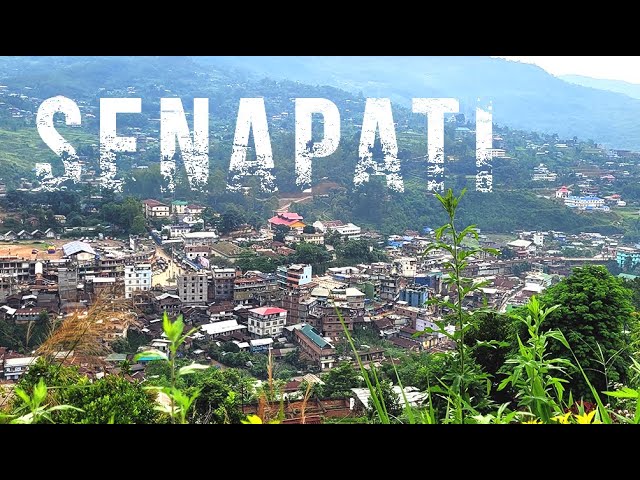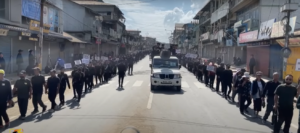Unau is your digital destination for celebrating the essence of brotherhood across the Kuki, Mizo, Zomi, and Hmar tribes.
In a stern response to the prolonged suspension of mobile internet services across Manipur, the Senapati District Students’ Association (SDSA) initiated an indefinite economic blockade on critical national highways – NH-2 and NH-129A, beginning Thursday evening. This decisive action has led to around 90 commercial vehicles being stranded at the Manipur-Nagaland border, highlighting the rising tensions and the direct impact of internet suspension on the region’s socio-political landscape.
The blockade was enforced at two crucial entry points adjoining Nagaland, marking a significant escalation in the ongoing tussle between the state government and local bodies demanding digital inclusivity. NH-2 and NH-129A aren’t merely stretches of tarmac; they are vital lifelines for the populace of Manipur, connecting them to essential goods and services.
As per the latest reports, around 90 goods-carrying vehicles found themselves stranded on Nagaland’s side of the interstate boundary in Khuzama along NH-2 as of Friday. The situation on NH-129A, connecting Peren in Nagaland and Maram in Manipur, remained uncertain with no clear assessment of stranded vehicles available at the time of reporting.
This bold move by the SDSA came after a 24-hour ultimatum served to the state government on October 4, demanding the restoration of mobile internet service in the Senapati district, where law and order situation reportedly remains stable. The association emphasizes that internet access transcends the boundary of privilege and enters the realm of fundamental rights, an indispensable facet of modern-day living.
In a statement, the SDSA articulated, “We firmly believe that access to the internet is not just a privilege but a fundamental right that every citizen should enjoy without interruption…” The indiscriminate ban on mobile internet services across the state, despite the calm prevailing in certain districts like Senapati, has been termed as unjustifiable and an infringement on basic citizens’ rights.
The SDSA elucidated that the economic blockade emerged as a last resort, a form of “democratic agitation” to ensure their voices resonate through the corridors of power. The General Secretary of SDSA, L Singson, expressed dismay over the state government’s lack of engagement with the association since the blockade commenced on Thursday evening. The resolve remains firm – the blockade will persist as long as the mobile internet services remain suspended.
Extending the ambit of their movement, the SDSA is in dialogue with similar bodies in other peaceful districts like Chandel, Tamenglong, and Ukhrul, aiming to form a unified front demanding the restoration of mobile internet services. This collaborative stance amplifies the resonance of their demand, showcasing a cross-district solidarity on the issue.
The situation unravelling in Manipur is emblematic of a larger narrative where digital accessibility is viewed through the prism of basic human rights. In an era where information is power, the deprivation of internet services not only hinders the dissemination of knowledge but could potentially stifle the democratic ethos that thrives on the free flow of information.
As the blockade continues to choke critical supply lines, the ripple effects are bound to percolate down to the common citizens, whose lives are intertwined with the seamless functioning of these highways. The standoff between the SDSA and the state government is not merely a local issue; it’s a stark reminder of the delicate balance that needs to be maintained in ensuring digital inclusivity while addressing administrative concerns.
The unfolding scenario beckons a thorough deliberation and a balanced approach from the state government to address the grievances of the SDSA and other similar bodies. A dialogue, encompassing various stakeholders, could pave the path towards a resolution that upholds the rights of citizens while ensuring the maintenance of law and order.
As Manipur grapples with this blockade, the spotlight is firmly on the state government, awaiting its response to the democratic agitation orchestrated by the SDSA. The resolution of this blockade and the restoration of internet services could serve as a benchmark, underlining the importance of digital rights in fostering a progressive and inclusive society.
Source: Tuithaphai Times








